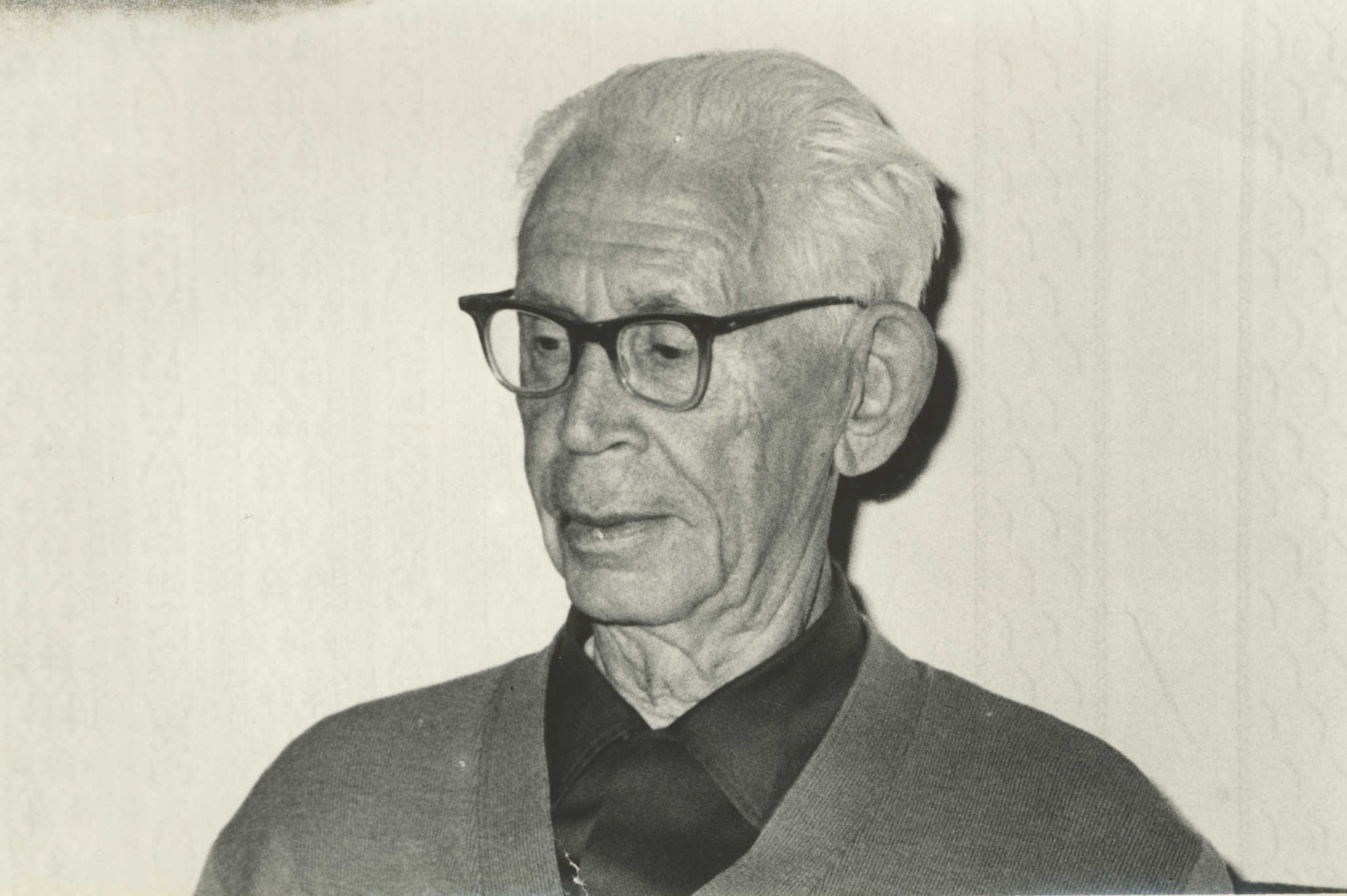
Elar Kuus
Elar Kuus (given name Elmar Kuusik, pseudonym Elmar Ramla; 17. / 5. XI 1899 – 6. XI 1988) was a children’s author.
He was born in Tartu county; his family left Estonia for St. Petersburg governorate because of the events of 1905. Kuus’ schooling began there, in the village school at Sudela. Coming back to Estonia, he continued his education at Narva-Jõesuu, Rakvere teachers’ seminary, the Hugo Treffner Gymnasium in Tartu, the Tartu teachers’ seminary, and from 1926 to 1930 at the University of Tartu, studying history and economics. Besides this he also studied at the Tartu Conservatoire. He worked in various places as a teacher, and was dramaturge of the State Youth Theatre of the ESSR (1946-1948) and the Estonia theatre (1948-1949). In the early fifties he was in Narva prison camp on political charges. Later he was a professional writer in Tallinn. He joined the Writers’ Union in 1980. His partner was the children’s writer Aino Tigane (1912-1991). He died in Tallinn, and was buried in Metsakalmistu in Tallinn (‘Forest Cemetery’).
At the beginning of his career he wrote textbooks. Kuus came to literary fiction in the Loodus publishing house’s children’s literature competition, in which he won a prize in 1936 for the fairy-tale Lugu pöialpoisist, kotkast ja sitikast (‘The Story of the Hop-o’-My-Thumb, the Eagle and the Beetle’) and in 1938 for the tale Jänesepoeg, kes luuletas (‘The Baby Hare Who Wrote Poetry’). Kuus gained attention for his fluent use of language suitable for children and the creativity of his storytelling. A didactic component played an important part too. Kuus himself said that in literature intended for young readers a closeness to nature, simplicity of language, and subjects familiar to the child from everyday life are important. His works are striking for their imagination and humour.
Kuus’ best-known work Memme musi (‘Mummy’s Kiss’) originally appeared in the magazine Täheke in 1966, and as a separate book in 1978. Also well-known are the books telling of the lives of stone-age people in the tones of popular science, Nupumees Ati (‘Smart Ati’, 1980), and Välek Vibulane (‘Alec the Archer’, 1978). A puppet film based on the latter story, with the same name, introducing stone-age life in a popular-scientific way (1980, directed by Heino Pars). The more recent past – the revolution of 1905 – is the subject of the short story collection Purgaa (‘Purga’, 1961). There is a nostalgic tendency in Kui vanaisa poisikene oli (‘When Grandad was a Little Boy’, 1977) and Verevennad (‘Blood Brothers’, 1986). The everyday life of collective-farm workers, and the relationship of children to nature, are the focus of Meie Ott (‘Our Ott’, 1959), written with Aino Tigane.
A. K. (Translated by C. M.)
Books in Estonian
Children’s books
Elmar Ramla, Lugu pöialpoisist, kotkast ja sitikast: muinasjutt. Tartu: Loodus, 1936, 64 lk. [2. trükk: 2003.]
Elmar Ramla, Kodukäijad seiklevad: kolm väikest inimest erapooletul ribal suvel 1918: jutustus. Tartu: Noor-Eesti, 1937, 235 lk.
Elmar Ramla, Jänesepoeg, kes luuletas: jutustus lastele. Tallinn: Loodus, 1938, 32 lk. [Järgmised trükid: 1948, 1953, 1982, 2008.]
Aino Tigane, Elar Kuus, Meie Ott: jutustus. Tallinn: Eesti Riiklik Kirjastus, 1959, 164 lk.
Purgaa: kolm seiklust: jutustused. Tallinn: Eesti Riiklik Kirjastus, 1961, 60 lk.
Päikese perekond: jutustused. Tallinn: Eesti Raamat, 1974, 56 lk. [2. trükk: 1975.]
Seiklusi noorusmaalt: jutustused. Tallinn: Eesti Raamat, 1975, 152 lk. [2. trükk: 1984.]
Kui vanaisa poisikene oli: jutustusi nooremale koolieale. Tallinn: Eesti Raamat, 1977, 65 lk.
Kilgi võti: muinasjutud. Tallinn: Eesti Raamat, 1978, 44 lk.
Memme musi. Tallinn: Eesti Raamat, 1978, 27 lk. [2. trükk: 1989.]
Välek Vibulane: jutustused. Tallinn: Eesti Raamat, 1978, 120 lk.
Nupumees Ati: lühipalad. Tallinn: Eesti Raamat, 1980, 32 lk.
Loomarahva keskel: jutustus. Tallinn: Eesti Raamat, 1981, 76 lk.
Sabaga sugulased: jutustused. Tallinn: Eesti Raamat, 1981, 47 lk.
Südame võti. Lookesi suurte ja väikeste vahelt. Tallinn: Eesti Raamat, 1982, 79 lk.
Teopoiss Tiit ja lauluilu: jutustus. Tallinn: Eesti Raamat, 1982, 21 lk.
Verevennad: jutustus. Tallinn: Eesti Raamat, 1986, 152 lk.
Sip-Sip: metsakuninga jooksupoiss: jutustus. Tallinn: Eesti Raamat, 1988, 30 lk.



